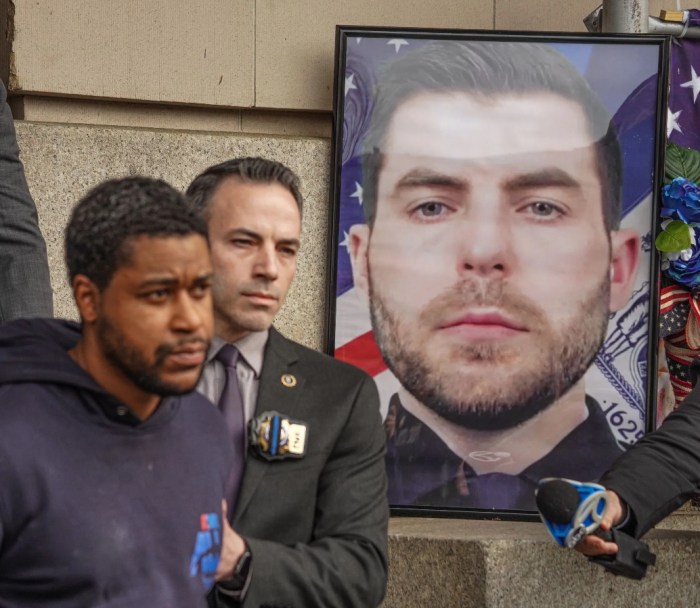
Eating food and running may seem like an unlikely pairing for a fundraising event, but that didn’t stop Jose Alzorriz from being among the first to sign up for the Taco Mile two years ago to benefit victims of a deadly earthquake in Mexico.
Now, a similar event is being planned in memory of Alzorriz, who was killed in a multicar crash while riding his bike in Midwood on Aug. 11.
“Jose was a really good, genuinely kind person,” said Jonathan Cane, who is organizing the Donut Mile fundraiser in his honor. “He was always that guy who was there to lend a hand with things.”

Cane, 55, met Alzorriz about 15 years ago through the city’s running and triathlon community, and they quickly bonded over a shared love of dogs. After his death, Cane said he spoke to a close friend of Alzorriz’s about putting together a fundraiser in his memory.
“It’s a loss for the community as a whole,” said Cane, whose athletic training company City Coach is hosting the event at the Red Hook Track in Brooklyn on Sept. 25. “Yes we’re all still going to be sad, but by then I think doing something with a little bit of a whimsical twist will still be respectful.”
The so-called dine-and-dash fundraiser is a simple concept. It’s $25 to register for the run, and there is an option to add a donation as well. Participants run a total of 1 mile but stop to eat a doughnut every quarter mile.
Prizes are awarded to the man and woman who finish first, but all proceeds from the event are to be donated to the Sean Casey Animal Rescue in Alzorriz’s name.
"He was such a dog lover and I know he was a fan of the Sean Casey Animal Rescue," Cane said of his choice to donate to the Windsor Terrace-based facility.
With about a month to go until the event, Cane said he’s already seen an outpouring of support. An anonymous donor is providing all of the doughnuts and over 40 people have registered, bringing in nearly $2,500 in donations so far.
Cane said he expects donations to continue in the weeks to come, up through the day of the race.
“I’m gratified and proud to be part of a community that really does look out for each other, and Jose was a big part of that," he said. "We’ll miss him but I think we’re trying very hard to keep his memory going with things like this and other events.”
On Sunday, hundreds of people rode bicycles from Park Slope to Avenue L and Coney Island Avenue — the intersection where Alzorriz was killed. A white “ghost bike” and plaque now mark the location where the 52-year-old died.

The driver accused of causing the crash, Umar Mirza Baig, of Queens, is facing manslaughter and a slew of other charges, police said. Baig, 18, was allegedly traveling over 60 mph when his Dodge Charger collided with a Honda SUV, which slammed into Alzorriz, according to the Brooklyn District Attorney’s office. The speed limit in that area is 25 mph.
The crash was caught on video and widely shared on social media, sparking outrage from the cycling community, which is reeling from a spike in crash-related deaths this year. Alzorriz is the 19th cyclist to die on city streets in 2019 — up from 10 recorded in all of 2018.
Mayor Bill de Blasio in July outlined a $58.4 million, five-year plan to improve cycling safety but advocates argue more needs to be done now, before another person is killed.















